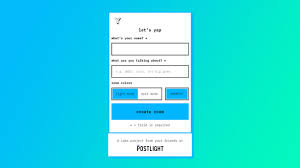
Breaking News
SEMI-NEWS/SEMI-SATIRE: December 7, 2025 Edition
 Harbor Freight Coverpro 12x20 made into a Metal Building part 2
Harbor Freight Coverpro 12x20 made into a Metal Building part 2
 Brian Cole BUSTED, Halle Berry NUKES Newsom + Candace REJECTS TPUSA Challenge...
Brian Cole BUSTED, Halle Berry NUKES Newsom + Candace REJECTS TPUSA Challenge...
 I spent my Thanksgiving in the emergency rom... Medical emergencies can pop up at any time.
I spent my Thanksgiving in the emergency rom... Medical emergencies can pop up at any time.
Top Tech News
 Build a Greenhouse HEATER that Lasts 10-15 DAYS!
Build a Greenhouse HEATER that Lasts 10-15 DAYS!
 Look at the genius idea he came up with using this tank that nobody wanted
Look at the genius idea he came up with using this tank that nobody wanted
 Latest Comet 3I Atlas Anomolies Like the Impossible 600,000 Mile Long Sunward Tail
Latest Comet 3I Atlas Anomolies Like the Impossible 600,000 Mile Long Sunward Tail
 Tesla Just Opened Its Biggest Supercharger Station Ever--And It's Powered By Solar And Batteries
Tesla Just Opened Its Biggest Supercharger Station Ever--And It's Powered By Solar And Batteries
 Your body already knows how to regrow limbs. We just haven't figured out how to turn it on yet.
Your body already knows how to regrow limbs. We just haven't figured out how to turn it on yet.
 We've wiretapped the gut-brain hotline to decode signals driving disease
We've wiretapped the gut-brain hotline to decode signals driving disease
 3D-printable concrete alternative hardens in three days, not four weeks
3D-printable concrete alternative hardens in three days, not four weeks
 Could satellite-beaming planes and airships make SpaceX's Starlink obsolete?
Could satellite-beaming planes and airships make SpaceX's Starlink obsolete?
The best chat app you never knew you wanted is here

In Web 1.0, the internet was known for its static, clunky websites and the rise of widely available information. The user-generated content and constant chatter we know (and get overwhelmed by) today wasn't a thing until Web 2.0 took over about 10 years later, in the early aughts. But in the years leading up to the new millennium, one element of living online did allow people to engage: the chat room.
Chat rooms have since fallen out of favor, thanks to the popularity of other text-based chat devices and services such as iMessage and Twitter. But a new web-based application from digital product studio Postlight, called Yap, is hoping to restore chat rooms to their humble glory.
"I think everyone's a little tired of feeling like any time they need a service on the internet that everyone is recording what they say for eternity, or mining their data," says Adam Pash, Postlight's director of engineering and head of Labs. "Yap is a place where we don't do that."
The real-time chat room, which has no "scroll" feature because messages disappear as soon as they appear (just like real-life conversation!), demands that users live in the moment. "It's built with ephemerality as the core guiding principle—we don't save any chat logs, and the chat rooms explode after 24 hours of inactivity," Pash says. "In the same way you don't walk into a conversation with friends and say, 'What were you talking about for the last 20 minutes?,' you're not performing for posterity—you're just having a conversation and a good time."

 First totally synthetic human brain model has been realized
First totally synthetic human brain model has been realized Mach-23 potato gun to shoot satellites into space
Mach-23 potato gun to shoot satellites into space

